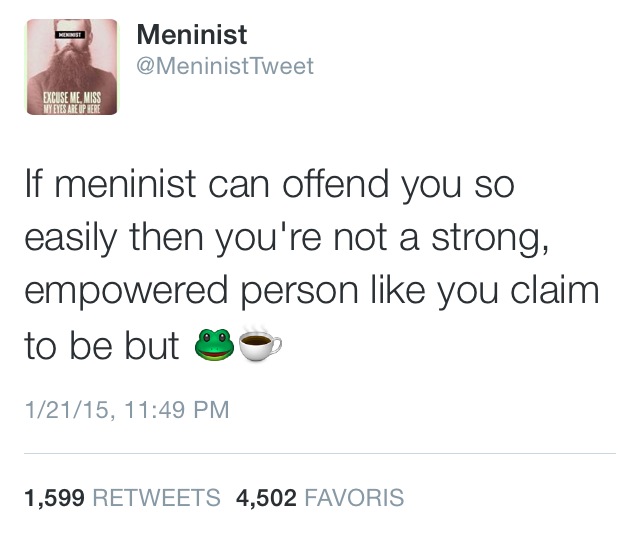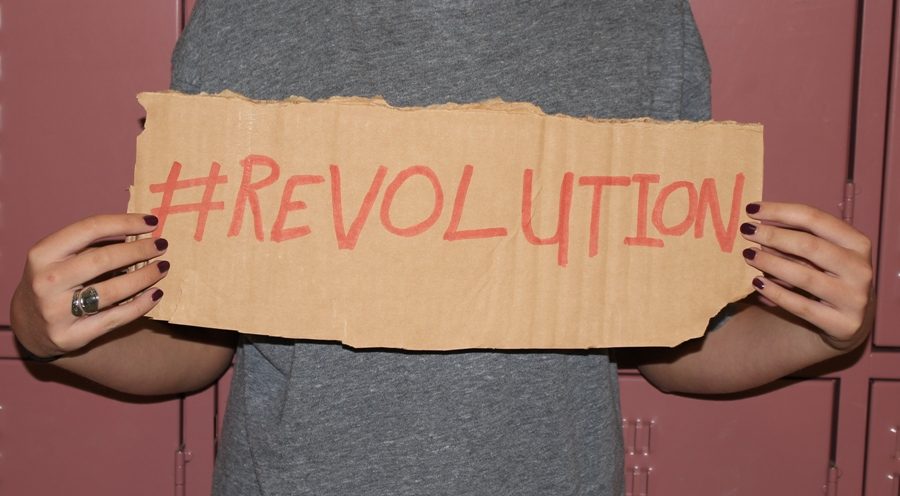Counter-activism endangers progress
“Hashtag activism” has become a large component of online activism, especially with regards to Twitter. Those against progressive ideals have used what they see as extreme examples to the justify the complete deflection of activism.
November 17, 2016
Since its inception, the internet has become an integral part of human life. It captures our every communication, joke, insult, artistic expression, and, more recently, our activism. As the internet’s growth has accelerated, a new genre of online activism has come to exist.
Online activism is the use of the internet to promote awareness of current issues. This activism can be formal campaigning by politicians or institutions, but the most interesting form of activism happens when social media savvy individuals, with no prior organizational ties or motivations, begin to voice their advocacy. To them, the online world is not just an asset for their preexisting views but also the only place it can fully exist.
We have seen numerous examples of this throughout the years. Hashtags rally activism on Twitter, whether they are calling attention to injustice, such as #AmINext, which dealt with the murders of indigenous women in Canada, or #BlackGirlMagic, a social campaign aimed at spreading positivity toward groups that are oftentimes invalidated. Many individuals have asserted that online activism has replaced real-life sit-ins and protests, but on many occasions online movements merely foster their counterparts in reality, as seen in the relationship between the 2014 Hong Kong protests by students for voting rights and the corresponding #UmbrellaRevolution.
Users traverse all lines, including those of gender, race, ethnicity, sexuality, and mental or physical abilities. Their experiences, fears, and concerns are voiced in every post and update. This, on its own, does not seem an issue, but others believe that the activism of these online users and their diction in safe spaces is too harsh and calling too much attention to something insignificant.
It is from this phenomenon that the “social justice warrior” and “anti-social justice warrior” were born: the online activist and online counter-activist. The SJW uses their online presence, first and foremost, to advance the process of progressive social change. The anti-SJW finds the constant discourse to be pointless and bothersome. These terms are truly very flawed in that they characterize individuals and their opinions in a single way.
Having a conversation with an individual who seems to fit in one of these categories quickly reveals that most people act on an issue-to-issue basis. Neither of these types of people truly exist, and the SJW phrase has turned into a dismissive label for any progressive viewpoint, an automatic reaction that can lead to dire consequences.
By identifying as an anti-SJW or participating in anti-SJW behavior, an individual may dismiss certain manifestations of activism they may find ridiculous, but may also foreclose the possibility of understanding pertinent issues that happen to be presented online. Beyond that, who are members of majority groups to decide what concerns are too “ridiculous” to matter among those at a disadvantage in society? The fact is, for many online activists, their advocacy is much more than the petty policing of others’ online behavior; it is composed of concerns that translate into real-life feelings and situations.
One manifestation of anti-SJW behavior is the backlash against “political correctness.” The resurgence of the term has many causes. For one, the real world strides in minority rights have brought the out worst in many Americans. Online activity has also been a contributor. With the proliferation of progressive online content, there must always be a new way to dismiss it. In this case, any statement or movement that implies inclusion is now an unreasonable demand. To even hint at a sense of national unity, despite demographic differences, is now seen as a weakness. Those who continue to dismiss activism as political correctness fail to understand the very real issues facing minorities, and that minorities are not the problem facing America.

This is a “meninist” tweet from 2015, and a good example of what counter-activism looks like online. It may seem lighthearted, but is nevertheless damaging to the message of activists.
The behavior can be spread to even more contexts. Take “meninism,” an online counter-movement to feminism. Arguably, most individuals proliferating content with the name attached were not attempting to launch serious ideas or could have been even participating ironically. With that being said, mocking and turning real activism into a joke is one of the most dangerous forms of resistance anti-activist groups have, and should not at all to be taken lightly.
In this day and age, if someone were to go online and make a sincere post detailing the inferiority of a minority group, the response would not be overwhelmingly positive. However, if a counter-activist utilizes the convenient packaging of an internet meme, those same sentiments can be legitimized. There is no guilt or self-awareness in a lighthearted retweet, and so hateful rhetoric, which is oftentimes incredibly damaging to actual activism, spreads like wildfire. This allows those who are uncomfortable with others’ activism, the privileged, to feel validated, and to create a safe hideaway from which to foster their bigoted views.
One might look at the commonly said “triggered.” It comes in many forms, but in a nutshell it’s a remark that is sometimes perceived as humorous and used to deflect the voices of others, particularly women and minorities. It stems from a term used by those with mental illness, such as depression, anxiety, and post traumatic stress disorder, to describe external events that exacerbate their symptoms. Although the term is not universally offensive to the mentally ill, a very important problem it is what it inherently silences — the voices of activists. Now, instead of being taken seriously, they’re just “triggered.”
Why does this deflection happen? Why is activism met with such intense opposition? Simply put, when someone is accustomed to privilege, equality, or even the mere whisper of it, it can feel like oppression. It’s not. Recognizing the struggles of others and trying to remedy those struggles is an exercise of compassion, not an erosion of a person’s own rights.
No matter where it happens, the struggle between activists and counter-activists is the same at its core. Whether online or face-to-face, it is the same age-old struggle. The voices that have been silenced for generations are finding new freedom on the internet, and this significant progress should not be undermined. It is important to understand when it’s time to talk, and when it’s time to listen.







